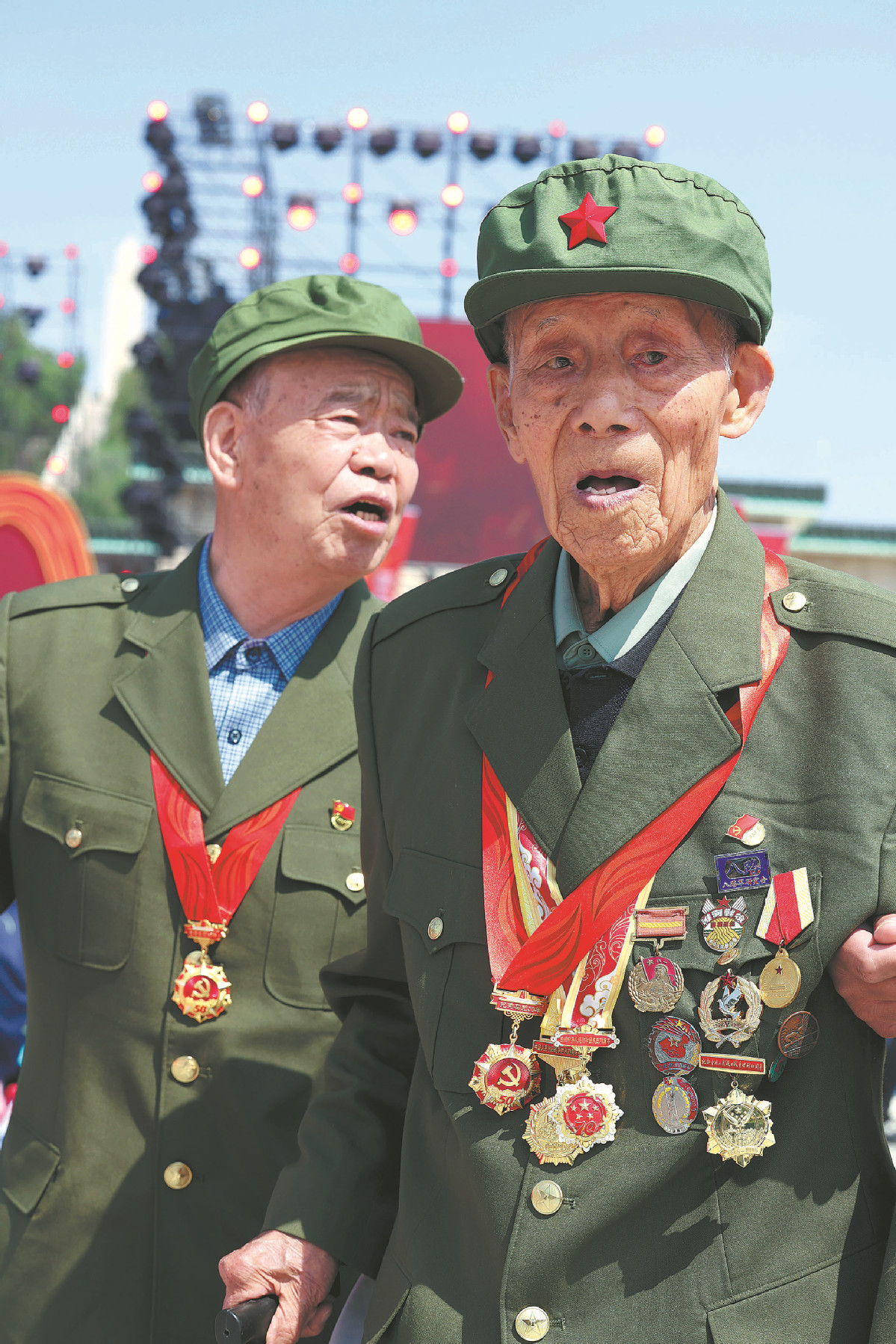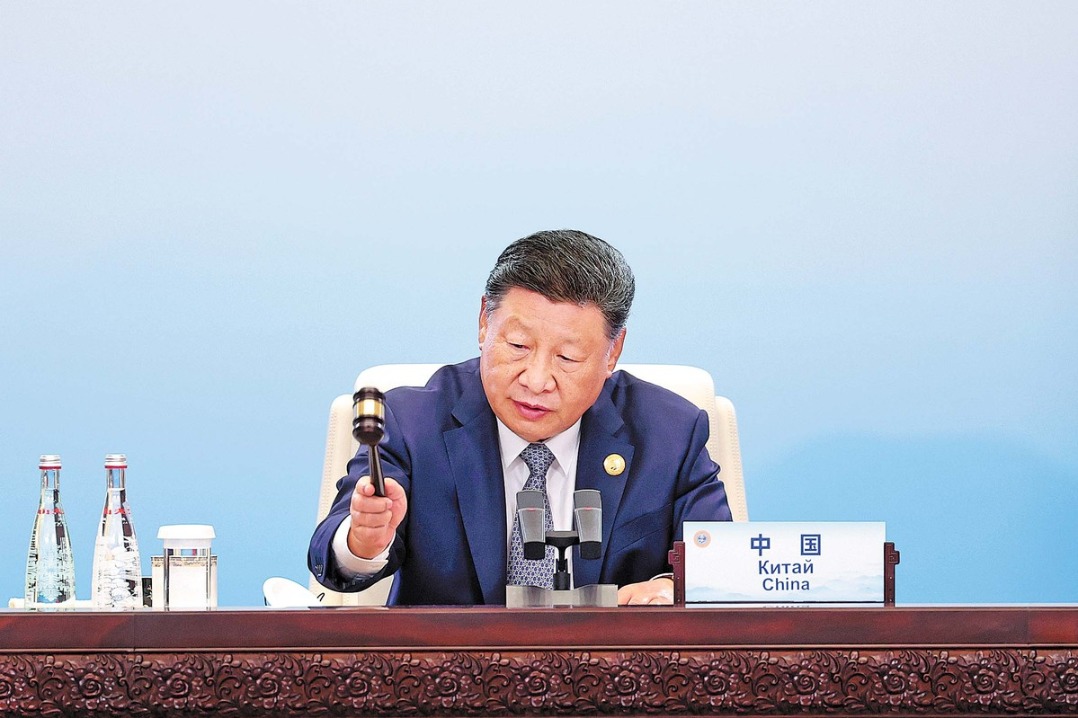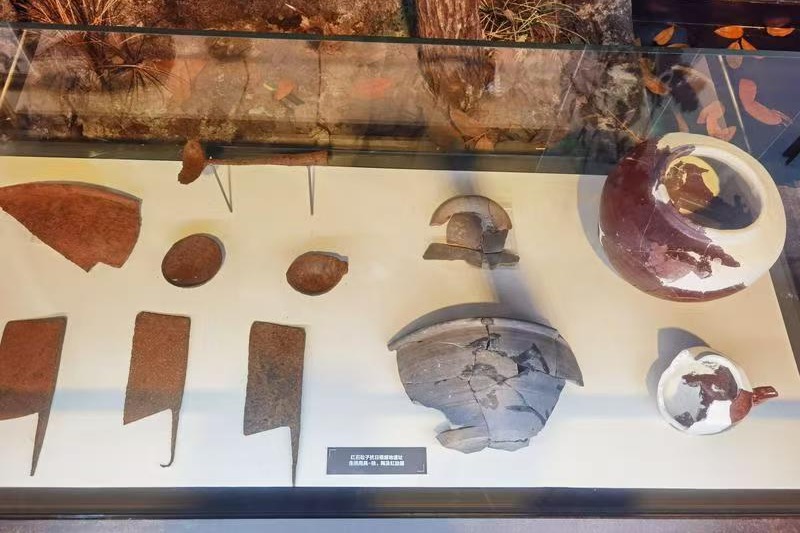Stories of hardship empower spirit of generations


At 98 years old, Li Jinshui remains clear-minded and spirited as he recounts his wartime service 80 years ago. Born in 1927 into a poor family in a village in Wuxiang county, Shanxi province, Li joined the Eighth Route Army, led by the Communist Party of China, at the age of 17.
"The Eighth Route Army treated the people very well, helping them fetch water and spread the call to resist Japanese aggression and save the nation," Li said.
"If you're Chinese and have a conscience, you should stand up and fight."
He said of the sacrifice of comrades: "Some of my comrades survived the war only to succumb to illness later. For the Party, the country and the people, they gave all they could."
During his first combat against Japanese forces, he was shot in the left leg. "I didn't even realize it," Li recalled. "My company commander discovered it, gave me a simple bandage, and later sent me to the hospital."
This commander, a veteran of the Long March (1934-36), told the young Li after witnessing his bravery, "You fight like a CPC member." Puzzled, Li asked, "What is a Party member?" He later learned, "A Party member fights against Japan's invasion of China and is unafraid of death."
After only four months in hospital, Li returned to the front line despite an incomplete recovery.
"The hospital was small, there were many wounded and the troops needed men. I had to return to my unit," he said.
He joined the CPC in 1945. Li later fought in the liberation of a Japanese puppet regime stronghold in Wuxiang county.
Facing over 200 entrenched Japanese soldiers refusing to surrender at an important transportation hub, the troops collected ammunition, dug tunnels to plant explosives under their pillbox, and made the enemy ride an "earth-flying machine".
Reflecting on the harsh conditions, Li said emotionally, pointing to his wounded leg: "On the battlefield, many comrades about my age fell while charging forward. We who survived have been treated very well. I should say, it was the Party that saved my life."
After the war, Li continued his military service until transferring to civilian work in 1963. He served as manager of the Wuxiang County Service Company and later as the head of a local electrical appliance factory.
His spirit influenced his family. His son, grandson-in-law and others joined the army. His grandson, Li Xin, now works in disciplinary inspection at a university in Taiyuan, Shanxi, and frequently brings his 3-year-old son to hear his great-grandfather's stories.
Li Xin recalled his grandfather teaching him about wartime hardship. "Sorghum and black beans were considered good food. Wild vegetables and tree bark could stave off hunger. In winter, steamed buns froze like lumps of ice, and we swallowed them with snow," he said.
When young Li Xin asked about the taste of eating buns with snow, Li Jinshui replied: "What you dislike eating now was food we could never even dream of back then. You must cherish your life today and never forget the goodness of the Party."
Li Xin strives to be an exemplary Party member and intends to pass on his grandfather's virtues as a "family heirloom".
- Stories of hardship empower spirit of generations
- Taiwan compatriots fought to liberate nation
- Veterans relive struggle against invaders
- China to hold massive parade to mark WWII victory
- New guideline aims to combat illegal fishing and strengthen port oversight
- Less-invasive spine surgery tech benefiting patients




































